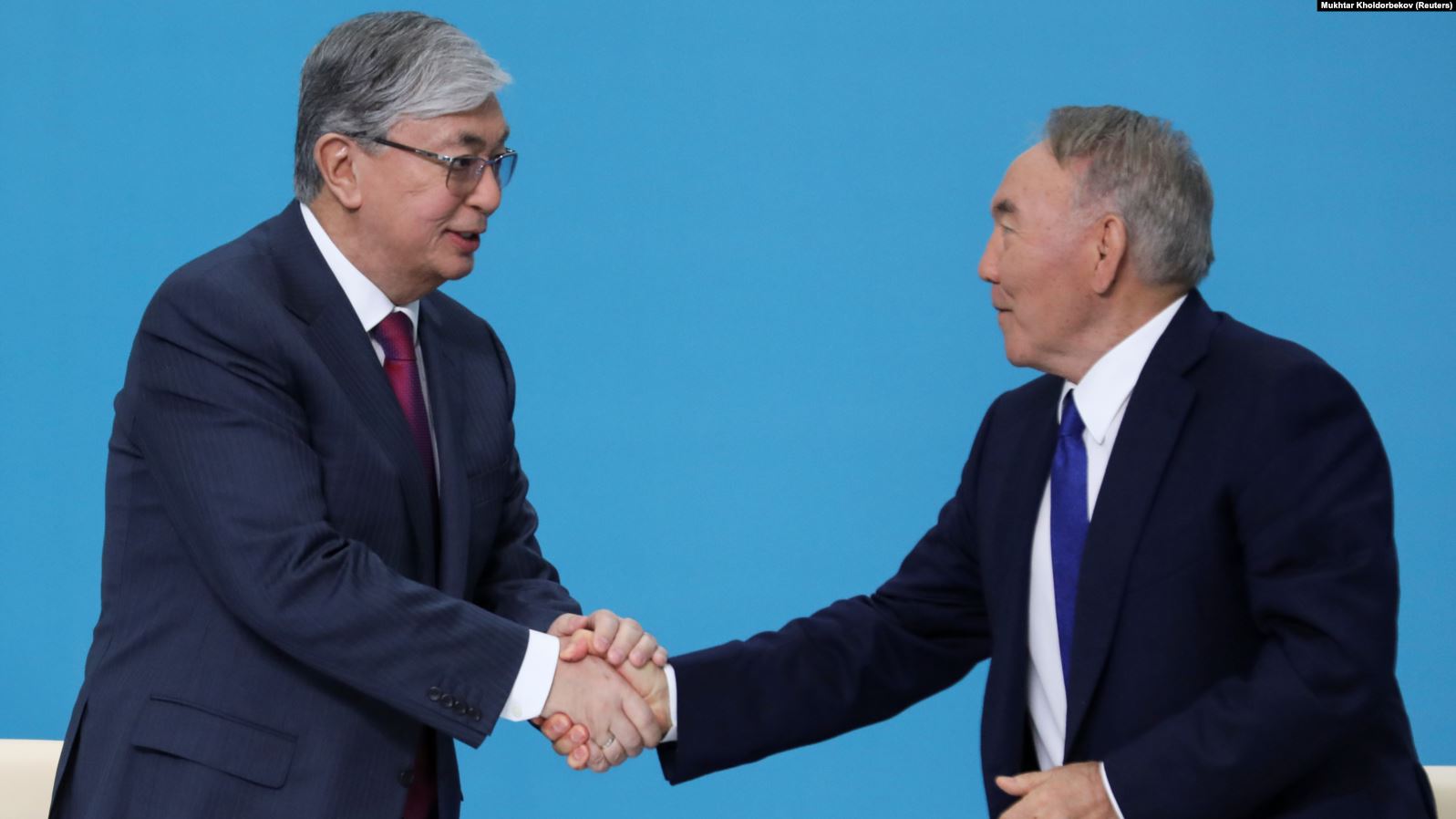
Kazakhstan's ruling Nur Otan party has nominated interim President Qasym-Zhomart Toqaev for the presidency, virtually assuring his victory in a snap election scheduled for June 9.
The announcement was made at party congress on April 23, weeks after Nursultan Nazarbaev abruptly resigned as president after 30 years in power in the tightly controlled Central Asian country.
"I propose Toqaev's candidacy for consideration," said Nazarbaev, who remains chairman of Nur Otan as well as the country's Security Council, and holds formal "leader of the nation" status. "I ask everyone to support his candidacy."
The party voted unanimously in favor of his proposal. Nur Otan had said in a statement on its website that a special congress would choose the candidate after the agenda for the meeting of the highest governing body of the party was approved on April 22 by its Political Council.
Nazarbaev, who ruled since before the 1991 Soviet collapse and tolerated little dissent, announced his resignation on March 19, and Toqaev -- a longtime diplomat who was speaker of the upper house of parliament, the Senate -- became interim president.
On April 9, Toqaev announced a snap presidential election for June 9, moving the vote forward by almost a year. The snap election appears aimed at shortening the political transition period and decreasing the chances of instability following Nazarbaev's resignation.
The announcement of a vote has also left potential opponents of the ruling-party candidate with little time to mount a campaign, reducing their chances in a country where opposition has been marginalized and politics is still dominated by Nazarbaev, whose favored successor is all but assured of victory.
Nazarbaev's eldest daughter, Darigha Nazarbaeva, had also been seen as a possible successor to her father. Nazarbaeva succeeded Toqaev as Senate speaker after he took over the presidential duties on March 20.
Toqaev's nomination came two days after police in Almaty, detained several young activists who protested during a marathon that brought runners from Kazakhstan and abroad to the country's largest city. The activists held a large banner that said "You cannot run away from the truth" and featured hashtags calling for fair elections.
Two of the detained activists, Asiya Tulesova and Beibarys Tolymbekov, were found guilty of violating the country's laws that ban public protests without an official permit and sentenced to 15 days in jail each. On April 22, three other activists were fined on the same charge.
Kazakhstan has seen unusually persistent protests recently in which demonstrators in several cities have accused the government of ignoring the needs and demands of ordinary people.
The protests were spurred in part by anger and grief over the deaths of five children from a single family in February in a house fire in the capital -- then called Astana, but renamed Nur-Sultan after Nazarbaev last month, after Toqaev proposed the change.
The predawn fire destroyed a small family home while both parents were away working overnight shifts, killing five girls aged 3 months to 13 years.
Opponents, critics, and rights groups say Nazarbaev, an authoritarian leader who has tolerated little dissent, prolonged his power in the energy-rich country of 18.7 million by manipulating the democratic process.
The 78-year-old is chairman for life of Kazakhstan's Security Council and has been granted the title of "elbasy," or leader of the nation, which gives him and his family lifelong immunity from any civic or criminal prosecution.
Original source: RFE/RL's Kazakh Service




